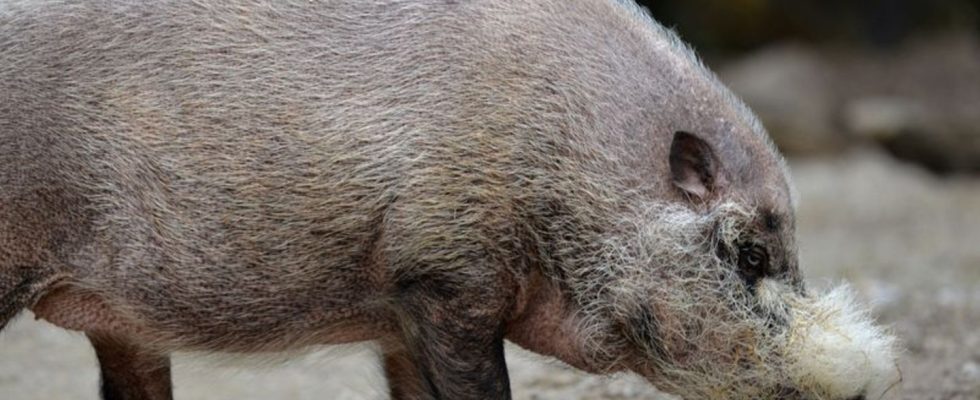Health
African swine fever harms indigenous peoples on Borneo
The pandemic is not only having a serious impact on animals. photo
© Frank Leonhardt/dpa
Swine fever makes headlines especially where there is a lot of pork production. It is hardly known that indigenous peoples are also affected. Ancient traditions are under threat in Borneo.
The global impact of the According to experts, African swine fever is much more serious than previously known. The virus has also been rampant in Asia for years and has brought pig populations there to the brink of extinction.
The pandemic has serious effects not only on the animals, but also on the people in the affected regions – especially on the indigenous peoples of Borneo, warn experts in an article in the specialist magazine “Science”.
Centuries-old cultural practices are threatened, and the diet of these peoples is also changing dramatically, write the researchers led by Erik Meijaard, the former chairman of the IUCN Wild Pigs Specialist Group. “Although Borneo’s Muslim population does not eat pork, the collapse of the pig population is impacting the livelihoods and cultural traditions of millions of non-Muslim people.”
Populations are partially extinct
On the world’s third largest island, which includes Indonesia’s Kalimantan, the Malaysian regions of Sarawak and Sabah, and the Sultanate of Brunei, bearded pigs (Sus barbatus) were once the most common large mammal species and were traditionally hunted. In some cases, because of swine fever, the population has declined by 90 to 100 percent since 2018, meaning it has almost disappeared, the scientists now explain. “The significant decline may warrant an upgrade of the conservation status from vulnerable to critically endangered.”
The virus also threatens ecosystems and other endangered wild animals. The wild boars eat seeds and spread them – they play an important role as so-called ecosystem engineers. “In addition, in the absence of pigs, people will likely focus on hunting endangered species such as southern porcine macaques (Macaca nemestrina).”
Researchers warn of irreversible losses
It is questionable whether the pig populations on Borneo and other islands in Southeast Asia such as Java, Sumatra and East Timor will ever be able to recover. Research and interventions are urgently needed to prevent the disease from spreading to other regions, such as the island of New Guinea. “The indigenous people there have such close ties to pigs that tribal women have been known to nurse piglets as if they were their own offspring,” a statement accompanying the letter said.
“Something must be done urgently,” demand the researchers. Otherwise, indigenous tribes risk an “irreversible loss of species and the ecosystems, cultures, livelihoods and communities they support.”

